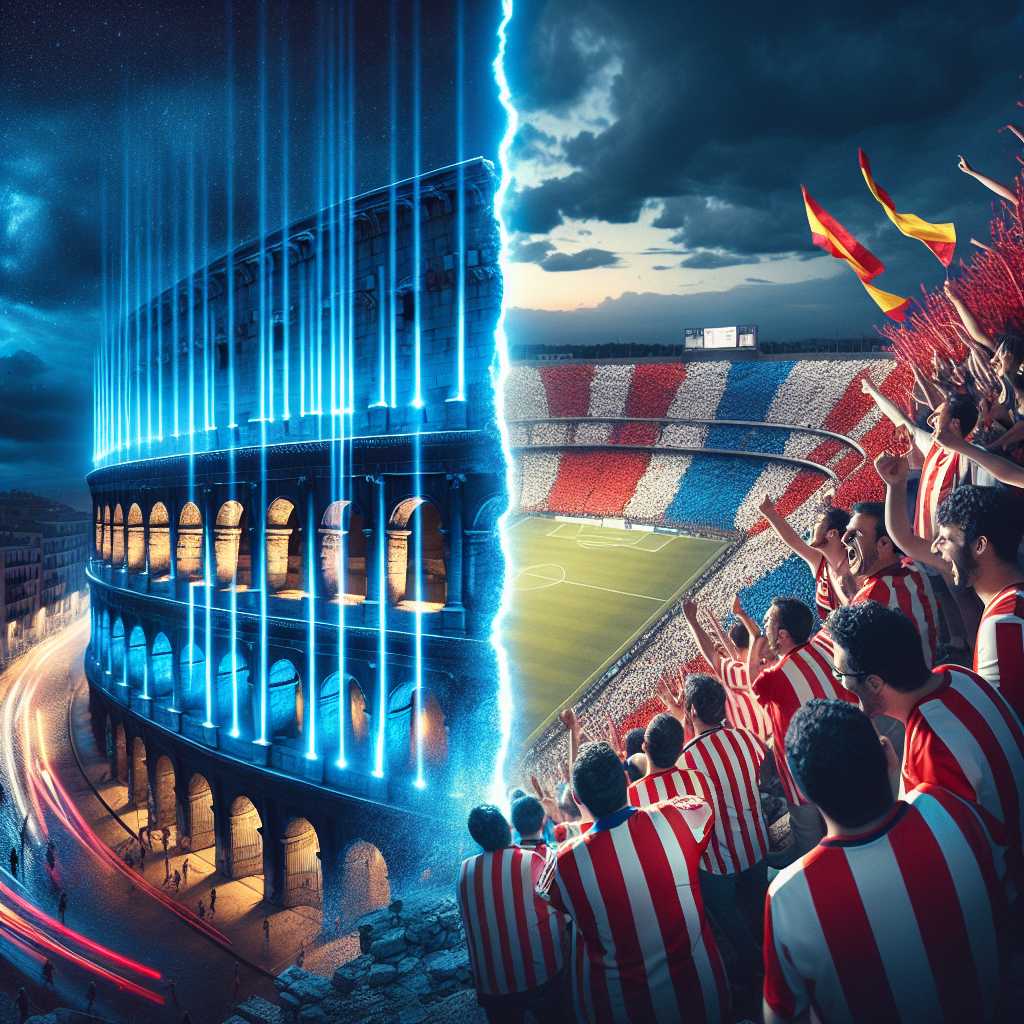Understanding the Storied Football Clubs: Inter Milan and Atlético Madrid
Inter Milan in Italy and Atlético Madrid in Spain hold storied positions within European and world football, each parading a rich history steeped in triumph, adversity, and iconic moments. This article compares these two football giants, analyzing the culture, success, management styles, and fanbases that differentiate these clubs while simultaneously stitching them into the fabric of international football.
The Founding and Early History of Inter Milan and Atlético Madrid
Inter Milan, known officially as FC Internazionale Milano, was founded on March 9, 1908. Remarkably, it was formed by a breakaway faction from the Milan Cricket and Football Club, now known as AC Milan, with the vision of accepting foreign players alongside Italians—hence “Internazionale.” From its beginnings, the club has donned its distinct black and blue stripes. It quickly became a symbol of Milanese culture and wider Italian pride.
Atlético Madrid’s story began on April 26, 1903, originally as Athletic Club de Madrid. The club was started by Basque students living in Madrid who wanted to create a youth branch for their favorite team, Athletic Bilbao. As the years passed, Atlético established its own identity separate from its Basque roots, donning red and white stripes—a reference to their original connection to Athletic Bilbao—and it would go on to embody the spirit of the Spanish capital alongside rivals Real Madrid.
Evolving Identities and Global Presence
Inter Milan found early success regionally and nationally but its true golden era shone in the 1960s under Coach Helenio Herrera. The period, known as Grande Inter, when they won multiple Serie A titles and European Cups using Herrera’s pioneering “Catenaccio” tactic. International flavors have always peppered Inter’s philosophy—they were one of the first clubs to harness talent from around the world firmly embracing globalization within football early on.
Atlético Madrid has been similarly disruptive in their own right by challenging the status quo of Spanish football prominence through their determination to break the duopoly of Real Madrid and Barcelona. Atlético represents work ethic and resilience—qualities that burgeoned under legendary coaches such as Diego Simeone. This blue-collar ethos invigorates their global appeal to fans resonating with the concept of fierce underdogs defending against giants.
Stadium Atmospheres and Fan Cultures
The San Siro stadium, or Stadio Giuseppe Meazza, is the hallowed home ground of Inter Milan, shared with AC Milan. It’s known for its red-tiered stands forming an arena that emanates rich history and passion. The vocal supporters referred to as Curva Nord provide vehement support rightly matching Inter’s dramatic and triumphant narrative.
Atlético’s Estadio Metropolitano replaced the historic Vicente Calderón Stadium in 2017 as their new battleground. The red-and-white sea of supporters—Los Colchoneros—faithfully follow their team echoing the club’s fighting spirit. Known for their unwavering support no matter the trials faced by the club—they personify loyalty in football fandom.
Management and Financial Operations
Among elite european clubs, good management has always been seen as crucial for sustained success. Inter Milan has seen contrasting eras in this domain but significant investment in recent times has catapulted them back into being competitive on both domestic and international stages. Strategic hires in coaching staff and astute player signings exemplify modern footballing business acumen at the club.
In Atlético’s corner, strong financial management allowed them to balance fiscal responsibility with competitive success—an admirable model for emerging clubs looking to break into established hierarchies. The stewardship of Diego Simeone demonstrated efficient team-building without reliance on excessive spending or superstar reliance; a model blended with tactical precision seamlessly aligning with Ruby-Club heartbeats.
Successes and More Recent Accomplishments
In recent years both clubs have experienced significant accomplishments on the pitch both at home and internationally. Inter boasts 18 Serie A titles, three UEFA Cup/UEFA Europa League victories, and three Champions League titles among a plethora of other honors cementing their legacy as a heavy European competitor.
Atlético similarly has retained competitive stature capturing 11 La Liga titles since its establishment including surprise league victories amidst more financially powerful competition. Achieving UEFA Europa League success among finals appearances in the UEFA Champions League showcase Atlético’s resiliency in modern football.
